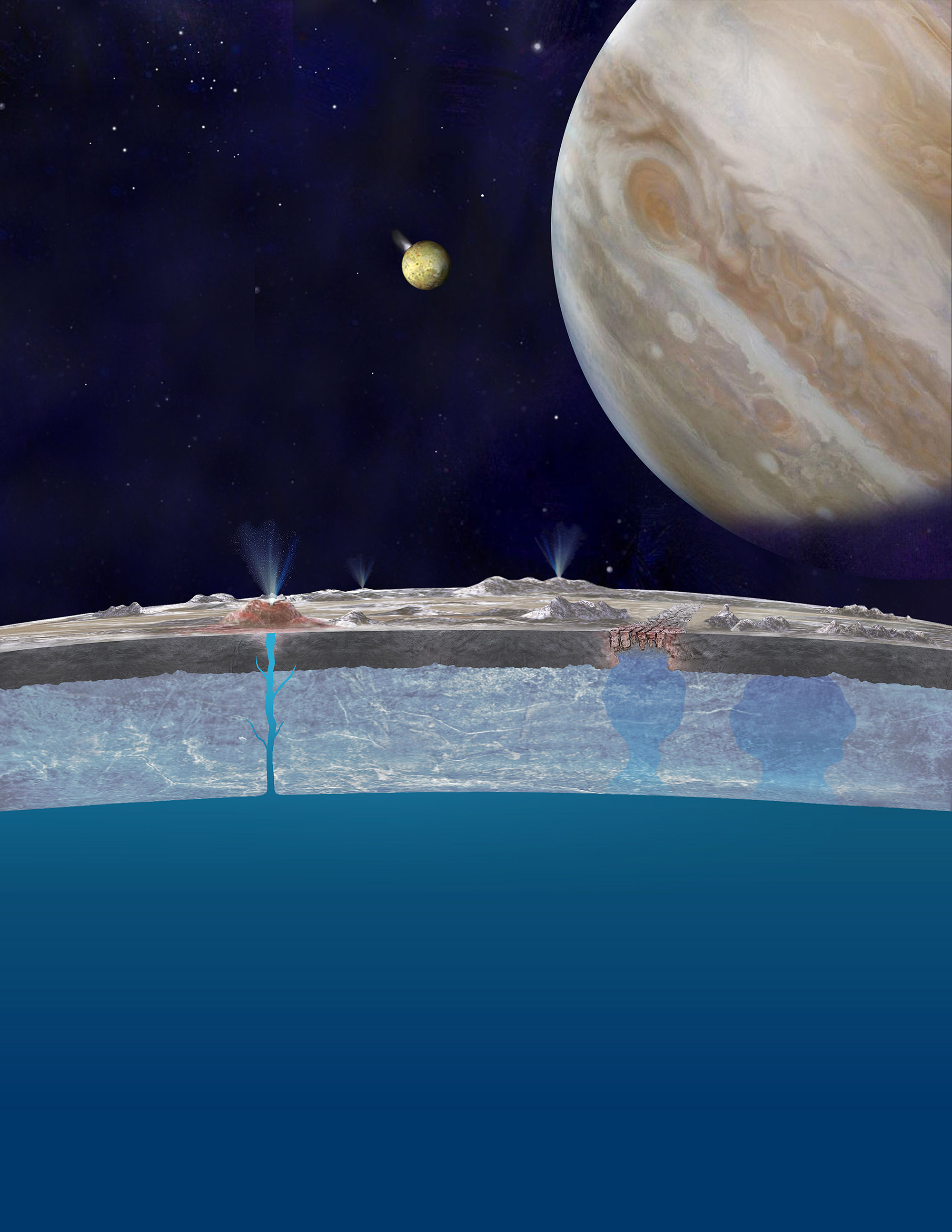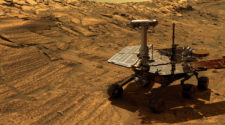
If you could lick the surface of Jupiter’s icy moon Europa, you would actually be sampling a bit of the ocean beneath. Mike Brown, an astronomer at the California Institute of Technology, and Kevin Hand from NASA’s Jet Propulsion Laboratory, have detailed the strongest evidence yet that salty water from the vast liquid ocean beneath Europa’s frozen exterior actually makes its way to the surface.
The finding, based on some of the best data of its kind since NASA’s Galileo mission (1989 to 2003) to study Jupiter and its moons, suggests there is a chemical exchange between the ocean and surface, making the ocean a richer chemical environment.
The exchange between the ocean and the surface, Brown said, “means that energy might be going into the ocean, which is important in terms of the possibilities for life there. It also means that if you’d like to know what’s in the ocean, you can just go to the surface and scrape some off.”
Europa’s ocean is thought to cover the moon’s whole globe and is about 60 miles (100 kilometers) thick under a thin ice shell. Since the days of NASA’s Voyager and Galileo missions, scientists have debated the composition of Europa’s surface. The authors believe the composition of Europa’s ocean may closely resemble the salty ocean of Earth.
Europa is considered a premier target in the search for life beyond Earth. A NASA-funded study team led by JPL and the Johns Hopkins University Applied Physics Laboratory, has been working with the scientific community to identify options to explore Europa further.
“If we’ve learned anything about life on Earth, it’s that where there’s liquid water, there’s generally life,” Hand said. “And of course our ocean is a nice, salty ocean. Perhaps Europa’s salty ocean is also a wonderful place for life.”



